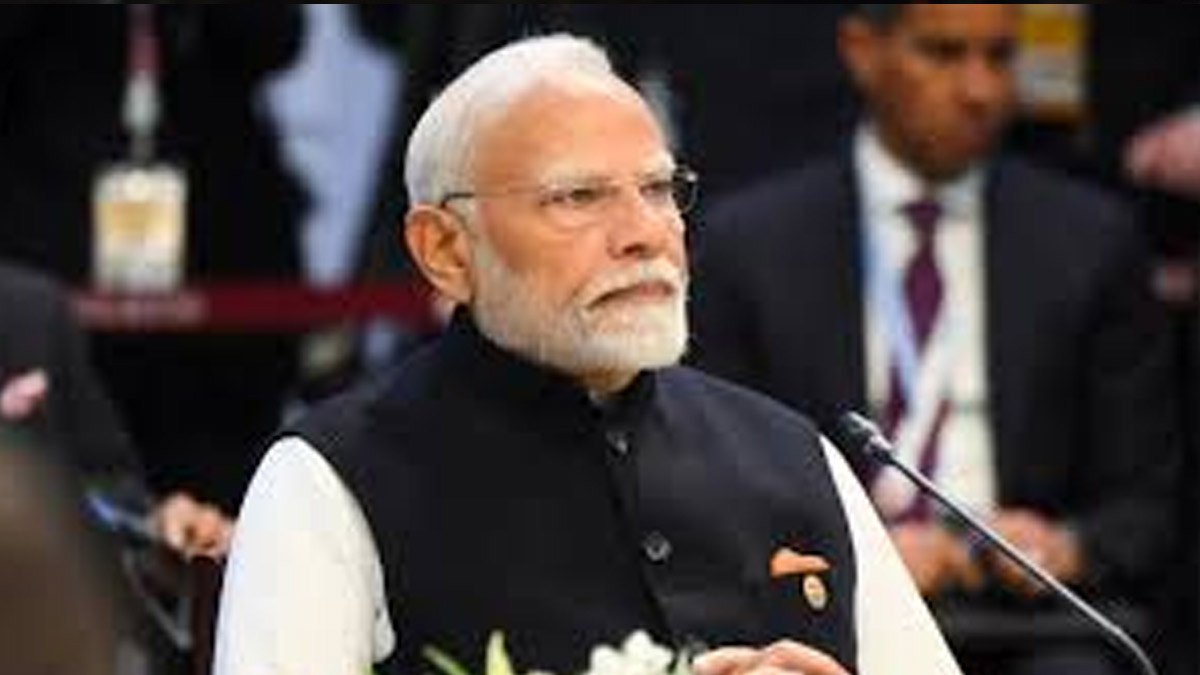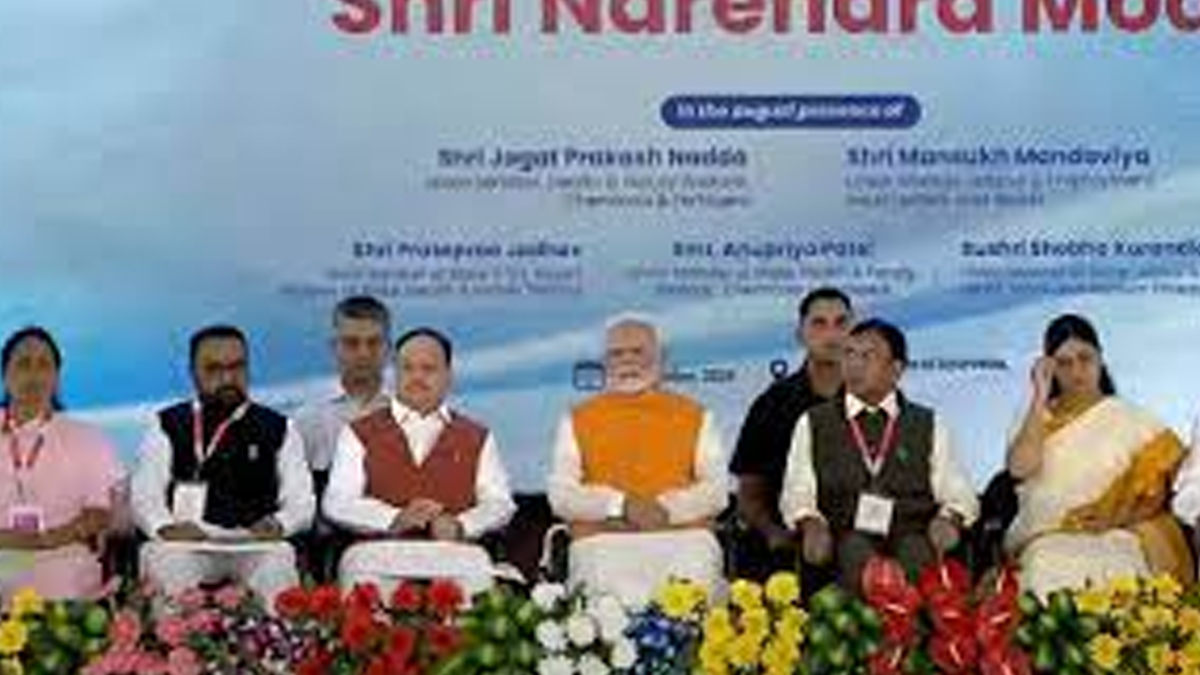
In a landmark initiative, Prime Minister Narendra Modi recently expanded India’s health care coverage under the Ayushman Bharat Pradhan Mantri Jan Arogya Yojana (PM-JAY), introducing new provisions specifically for senior citizens aged 70 and above. This new addition to the government’s flagship health program aims to provide elderly citizens with essential health benefits regardless of income, marking a significant step toward inclusive health care for India’s ageing population. Additionally, PM Modi introduced a suite of health projects, with an estimated budget of ₹12,850 crore, to bolster the nation’s health sector infrastructure and digital capabilities.
Table of Content:-
Unrestricted Health Coverage for Seniors
Under the expanded PM-JAY plan, elderly citizens over the age of 70 will have access to free treatment across participating hospitals by using a special Ayushman Vaya Vandana Card. This card eliminates income restrictions, ensuring both low- and middle-income seniors receive critical health support without financial strain. During the announcement, PM Modi emphasized the government’s commitment to removing barriers to healthcare access for older Indians, noting that illness often weighs heavily on families, especially those with limited resources.
The Ayushman Bharat Yojana has already been instrumental in providing health care to millions of disadvantaged families across India, with approximately 4 crore people benefitting since its inception. The program, designed to cover hospital expenses up to ₹5 lakh per family, aims to reduce the burden of medical costs on vulnerable households. By extending this scheme to seniors, the government is addressing a significant need within an often-overlooked demographic.

Addressing Health Care Inequities Across States
In his address, PM Modi acknowledged the lack of participation from some state governments, notably West Bengal and Delhi, in implementing Ayushman Bharat’s benefits, attributing their stance to “political interests.” He expressed disappointment that eligible citizens in these states remain excluded from the benefits of Ayushman Bharat, including the newly expanded coverage for seniors. Both states, however, maintain that their existing health programs effectively provide free treatment to residents, with state leaders arguing that local models meet public needs without Ayushman Bharat’s framework.
Also Read: Vidya Balan Opens Up About Dramatic Weight Loss And Her Game-Changing New Diet
Launch of the U-WIN Platform: Digitizing Health Care Access
PM Modi also introduced the U-WIN platform, a major technological addition designed to enhance health service accessibility across the nation. Modeled after the successful Co-WIN platform used during India’s COVID-19 vaccination drive, U-WIN aims to centralize and streamline health services, making healthcare information and resources available digitally to citizens across the country. The platform aligns with India’s vision of utilizing digital public infrastructure to enhance accessibility and affordability in health care.
Integrating Traditional and Modern Medicine
The Prime Minister’s announcement took place on Dhanvantari Jayanti, coinciding with the inauguration of the second phase of the All India Institute of Ayurveda. Emphasizing the importance of blending traditional and modern medical practices, PM Modi spoke about advancing research on ancient therapies such as Panchakarma and validating the efficacy of traditional herbs like ashwagandha, turmeric, and black pepper. According to Modi, scientific validation of these herbs could position them as valuable health assets in global markets, with ashwagandha alone projected to reach a valuation of $2.5 billion by 2030.
Also Read: Ajay Devgn Reveals Eye Surgery After Injury on Singham Again Set; Do’s And Don’ts After Eye Surgery
The Prime Minister highlighted the progress made over the past decade, showcasing a record number of new AIIMS and medical colleges across India. He noted that nearly 100,000 MBBS and MD seats have been added in the last ten years, increasing the country’s capacity to train health professionals and address the growing demand for quality health care.
Strengthening Affordable Access to Medicines and Health Products
In addition to expanding health services for seniors, the government has focused on reducing medical expenses for lower-income families. PM Modi announced the establishment of around 14,000 Jan Aushadhi Kendras, which offer affordable medicines at a discount of up to 80%. These centres have enabled savings of approximately ₹30,000 crore for low- and middle-income families. Furthermore, the government has reduced prices for essential medical devices, such as stents and knee implants, collectively saving Indian citizens around ₹80,000 crore.
A Holistic Vision for Health Care
Modi’s speech underlined the government’s commitment to comprehensive health reforms centred around five pillars: preventive health care, early detection, accessible treatment, availability of medical professionals in smaller towns, and technological expansion. These pillars aim to provide a complete healthcare ecosystem, supporting not only treatment but also preventive care and early diagnosis, which are vital for long-term public health.
The Prime Minister also mentioned specialized initiatives for labourers, such as dedicated hospitals, and the inauguration of new pharmaceutical units to improve access to high-quality medicines and medical implants. This holistic approach reflects the government’s vision of a health system that addresses a wide range of needs, from acute treatment to preventive care and wellness.
Bottomline
With the extension of PM-JAY to cover seniors and the introduction of digital innovations like U-WIN, India is stepping into a new era of accessible and inclusive health care. The recent initiatives underscore the government’s determination to safeguard the health of all citizens, regardless of age or economic background. By addressing long-standing gaps in the system, the Ayushman Bharat expansion represents a significant milestone in India’s journey toward a universally accessible healthcare system that respects both traditional knowledge and modern innovation.
Also watch this video
How we keep this article up to date:
We work with experts and keep a close eye on the latest in health and wellness. Whenever there is a new research or helpful information, we update our articles with accurate and useful advice.
Current Version